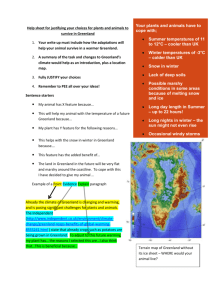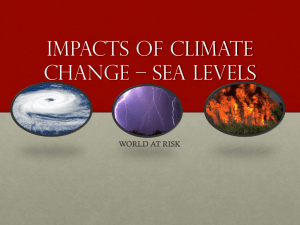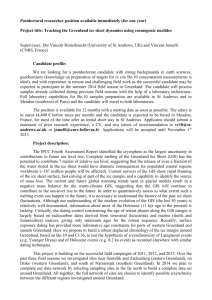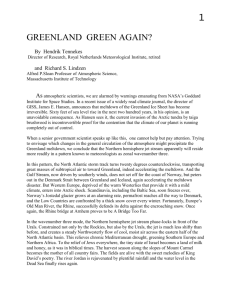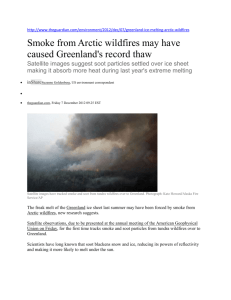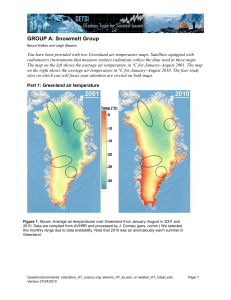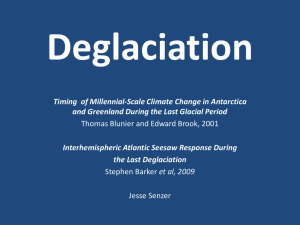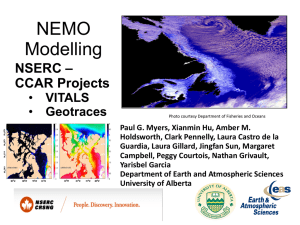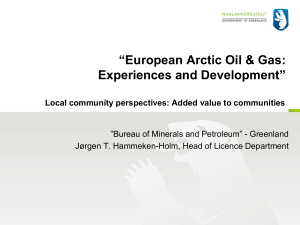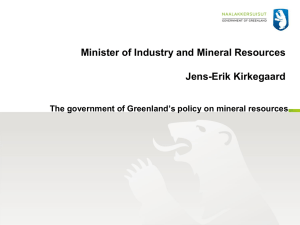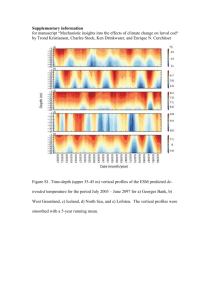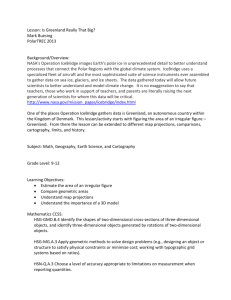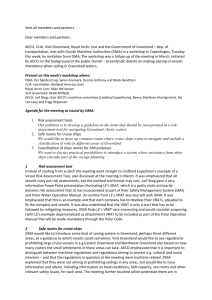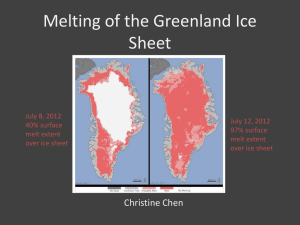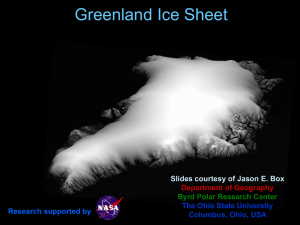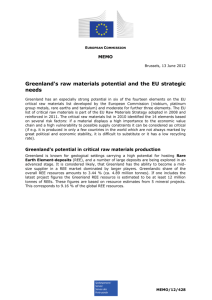High variability of Greenland temperature over the past 4000 years
advertisement
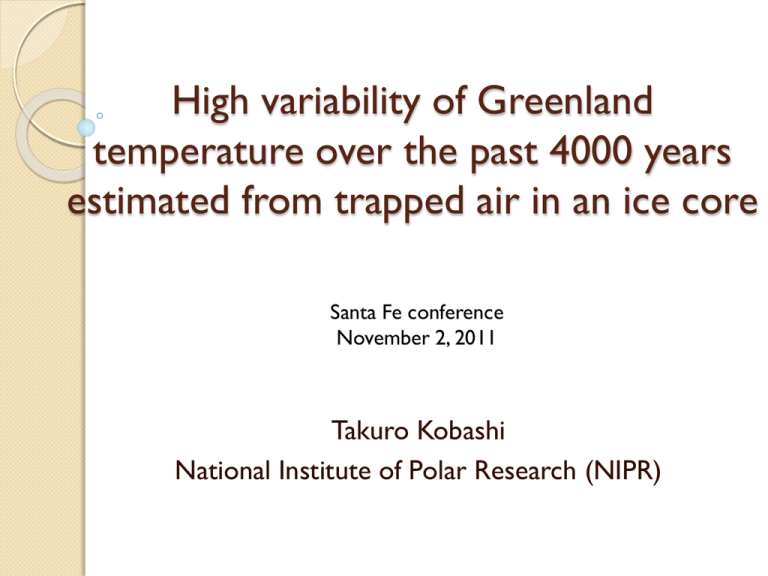
High variability of Greenland temperature over the past 4000 years estimated from trapped air in an ice core Santa Fe conference November 2, 2011 Takuro Kobashi National Institute of Polar Research (NIPR) Acknowledgements Recent collaborators; Kenji Kawamura; NIPR Jeffrey P. Severinghaus; Scripps Bo M. Vinther; CIC Sigfús J. Johnsen; CIC Jean-Marc Barnola; LGGE Toshiyuki Nakaegawa; MRI Jason E. Box; Byrd Polar Research Center Drew T. Shindell; NASA GISS Ayako Abe-Ouchi; University of Tokyo Masakazu Yoshimori; University of Tokyo Contents Background Reconstructed Greenland temperature over the past 1000 and 4000 years Placing the preset Greenland temperature into a 4000-year context Possible mechanisms of Greenland temperature variation over 1000 years (unpublished slides are deleted.) Background: Greenland temperature Recent record high temperature in Greenland is accelerating melting of the ice sheet. 4-23% of global sea level rise for the period of 1993-2005 is from Greenland. Regional climate variability such as the North Atlantic Oscillation/Arctic Oscillation (NAO/AO) and the Atlantic Multi-decadal Oscillation (AMO) affect Greenland temperature change. Causes of decadal Greenland temperature variation has not been well understood. Too short observational records to understand multi-decadal to centennial variation! Why is a new method necessary for Greenland temperature? Oxygen isotope of ice (d18Oice) Affected by changes in temperature of moisture source regions, moisture transport, pathways and precipitation seasonality. Temperature reconstruction from borehole thermometry Accurate but accurate but rapidly loses temporal resolution with increasing age into the past, owing to heat diffusion in ice sheets We need a better way to reveal past temperature from Greenland! Gas fractionation in firn (snow layer) Gravitation Thermal diffusion T1 Heavier gasses move downward Firn (snow: ~60m thick) GISP2 ice core T2 Heavier gasses move upward when T1 is colder than T2. DT = T1-T2 Ice Surface temperature can be calculated by DT using firn densification / heat diffusion model. Kobashi et al. Climatic Change (2010) Isotopic fractionation of nitrogen (15/14) and argon (40/36) d15Nobs = d15Ngrav + d15Ntherm d40Arobs = d40Argrav + d40Artherm d15Ngrav = d40Argrav/4 d15Ntherm = 15×DT; d40Artherm = 40×DT Therefore, DT (°C) = (d15Nobs - d40Ar/4obs)/0.0047 DT can be used for reconstructing surface temperature change combined with firn densification and heat diffusion model. Kobashi et al. Climatic Change (2010) Data The total number of samples is 1006 for 670 depths. Resolution = < 20 years. d15N d40Ar Kobashi et al., GCA, 2008. Greenland temperature North Atlantic Oscillation From Raymond W. Schmitt Positive NAO Negative NAO Changes in solar activity in a multi-decadal time scale may induce NAO-like atmospheric pattern (Shindell et al., 2001). Greenland temperatures over the 1000 years Medieval Warm Period Little Ice Age Kobashi et al., Climatic Change, 2010 Placing the present into a 4000 year context Current decadal average temperature in Greenland is not outside of natural variability of the past 4000 years. Kobashi et al. GRL in press Comparison with oxygen isotopes of ice •Reconstructed temperature (GISP2) •Borehole temperature reconstruction •Ice sheet elevation change GISP2; r = 0.41 with temp. NGRIP; r = 0.57 with temp. GRIPS; r = 0.51 with temp. Kobashi et al. GRL in press Conclusions Multi-decadal to centennial temperature variations in Greenland is reconstructed for the past 4000 years from occluded air in ice core. Present decadal temperature in Greenland is not beyond the envelope of natural variability of the 4000 years.
